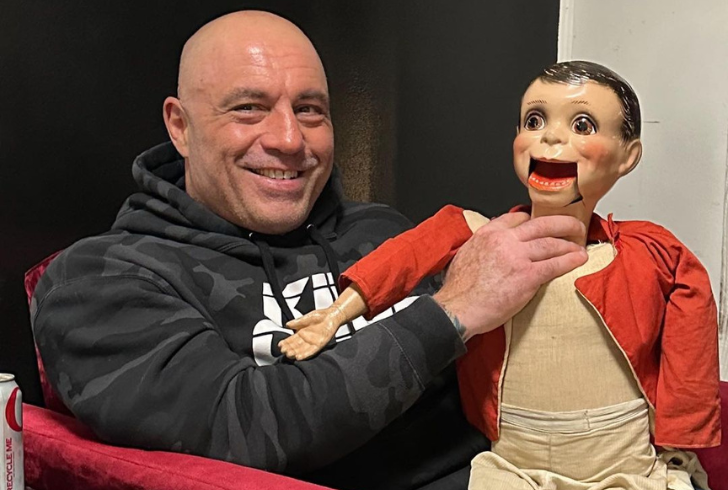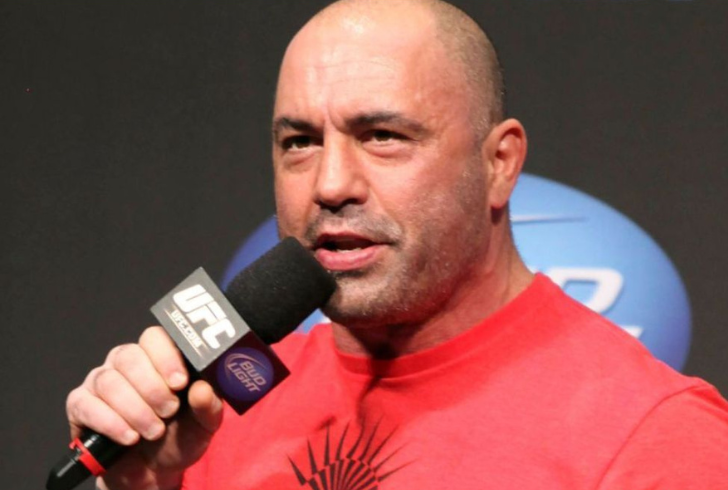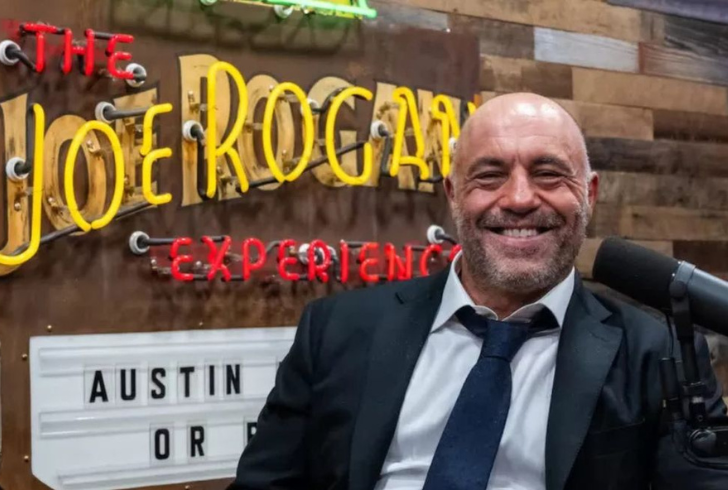Joe Rogan, a household name synonymous with stand-up comedy, podcasting, and UFC commentary, has cultivated a massive audience over the years. However, his popularity doesn’t shield him from criticism. This article explores the reasons why do people hate Joe Rogan.
Some listeners take issue with his approach to interviewing, particularly his willingness to host controversial figures without rigorously challenging their views.
Why Do People Hate Joe Rogan? Exploring the Reasons

Instagram | joerogan | Rogan’s candid discussions on social issues spark both praise and disapproval.
Several factors contribute to the controversy surrounding Joe Rogan. Let’s explore these distinct aspects to shed light on the differing perspectives:
- Political Bias and Controversial Guests: A frequent criticism centers on Rogan’s choice of guests and perceived political leanings. Some argue he offers a platform for controversial figures, often from the alt-right spectrum, without challenging their views. This, critics claim, normalizes fringe ideologies and fuels the spread of misinformation.
- Disagreements on Social Issues: Rogan’s candid discussions on social issues spark both praise and disapproval. Some detractors find his views on gender, race, and LGBTQ+ rights regressive. They argue his platform amplifies voices that perpetuate harmful stereotypes, hindering progress in social justice movements.
- Handling of COVID-19 Discussions: Rogan’s remarks and conversations surrounding COVID-19 have been a source of contention. Critics believe his platform became an avenue for misinformation, endangering public health due to his lack of scientific expertise.
- Lack of Fact-Checking and Critical Analysis: Another concern lies in the perceived lack of fact-checking and critical analysis on Rogan’s podcast. Detractors argue that his relaxed approach to questioning guests or verifying information fosters the spread of misinformation and undermines trust in evidence-based content.
- Allegations of Transphobia: Rogan’s comments on transgender issues have been debated and criticized. Jokes and remarks deemed insensitive by critics perpetuate harmful stereotypes about the transgender community, leading to calls for accountability and fueling animosity.
Why Do People Hate Joe Rogan? The Broader Impact
Beyond specific issues, Rogan’s influence and approach to podcasting raise broader concerns:

Instagram | thewesternjournal | Rogan’s comedic background involves provocative statements and humor that some find offensive.
1. Influence on Public Opinion
Given Rogan’s massive audience, critics worry about his potential to sway public opinion. They argue that the lack of journalistic rigor or fact-checking might contribute to the spread of misinformation, shaping people’s beliefs on various subjects.
2. Controversial Statements and Jokes
Rogan’s comedic background involves provocative statements and humor that some find offensive. Detractors argue that his jokes often cross the line, perpetuating harmful stereotypes and normalizing prejudice.
3. Perceived Lack of Accountability
Critics claim Rogan doesn’t take enough responsibility for his words and actions. His reluctance to engage in self-reflection or apologize for controversial remarks widens the gap between supporters and detractors.
4. Influence on Alternative Medicine and Health Practices
Rogan’s endorsement of alternative medicine and unconventional health practices raises skepticism. Critics argue that promoting unverified treatments and pseudoscience can mislead vulnerable individuals and undermine trust in evidence-based medicine.
5. Controversial Stances on Drug Use
Rogan’s openness about his past drug use attracts both fans and critics. Detractors argue that discussions on drugs might glamorize or normalize substance abuse, sending the wrong message, especially about marijuana.
6. Lack of Diversity in Guest Selection
Some criticize Rogan for the perceived lack of diversity in his guest selection. Critics argue that his podcast features white, male guests from similar backgrounds, limiting the perspectives and voices represented. This lack of inclusivity is a growing concern in the podcasting industry.
7. Handling of Sensitive Topics
Rogan’s approach to sensitive topics draws criticism. Detractors claim he often simplifies complex issues or fails to engage with nuance, leading to misinterpretations and potential harm. Critics argue that entertaining conspiracy theories and fringe ideas without thorough examination contributes to misinformation and polarized discourse.
8. Lack of Transparency in Platform Dealings
Rogan’s multimillion-dollar deal with Spotify marked a milestone in podcasting. But, the lack of transparency surrounding the agreement sparked discussions. The selective removal of episodes from other platforms during the transition to Spotify further intensified the issue, fostering speculation and online discourse.
These events brought to light broader concerns about editorial autonomy, platform influence, and responsibility in disseminating digital content.
A Complex Landscape

Instagram | tweaktown | Rogan’s podcast shapes public discourse, the perspectives discussed represent a specific segment of the population.
The reasons why some people dislike Joe Rogan are varied and multifaceted. Critics raise concerns about political bias, controversial guests, social issues, handling of COVID-19 discussions, lack of fact-checking, alleged transphobia, influence on public opinion, controversial statements, perceived lack of accountability, alternative medicine, drug use stances, lack of guest diversity, handling of sensitive topics, and lack of transparency in platform dealings.
It’s important to remember that while Rogan’s podcast shapes public discourse, the perspectives discussed here represent a specific segment of the population and shouldn’t be considered universally.







